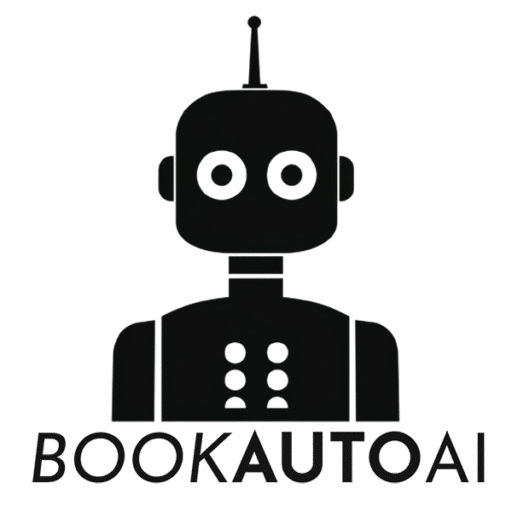
Writing Children’s Books with AI Is It a Good Idea
- by Lucas Lee
Writing Children’s Books with AI: Is It a Good Idea?
Estimated reading time: 7 minutes
- AI can enhance productivity and creativity in writing children’s books.
- Challenges include the loss of human touch and emotional depth.
- Quality control and content suitability are critical concerns.
- AI should be seen as a supportive tool rather than a replacement.
- Ethics and copyright issues need careful consideration in AI-assisted writing.
Table of Contents
- The Promise of AI in Writing Children’s Books
- Challenges and Concerns of Using AI to Write Children’s Books
- Expert Opinions and Industry Insights
- Practical Takeaways for HR and Publishing Professionals
- How Our Company Supports Creative Success with AI
- Conclusion
- FAQ
The Promise of AI in Writing Children’s Books
AI presents numerous advantages that can transform the way children’s literature is created and published. Here are some of the key benefits:
- Speed and Efficiency: One of the most compelling reasons to utilize AI in children’s book writing is its remarkable speed. AI algorithms can generate story ideas, draft narratives, and even produce illustrations rapidly, reducing the overall production time…
- Idea Generation and Creativity Boost: Writer’s block is a common obstacle for authors. AI tools can serve as creative partners, offering a continuous stream of story prompts, character ideas, and plot twists…
- Personalization for Young Readers: Advancements in AI enable the creation of customized stories tailored to individual children’s interests, reading levels, or cultural backgrounds…
- Cost-Effective Production: For independent authors and small publishers, AI-driven writing and illustration tools can significantly lower production costs…
Challenges and Concerns of Using AI to Write Children’s Books
While AI offers impressive advantages, there are notable challenges and ethical questions that need to be carefully considered:
- Loss of Human Touch and Emotional Depth: Children’s books are cherished for their warmth, emotional resonance, and human authenticity…
- Quality and Narrative Consistency: AI tools can sometimes produce awkward, inconsistent, or nonsensical narratives…
- Content Suitability and Accuracy: AI models are trained on vast datasets but may inadvertently generate inappropriate, biased, or factually incorrect content…
- Ethical and Copyright Challenges: The use of AI creates complex questions regarding intellectual property, artistic authorship, and copyright infringement…
- Industry Reputation and Long-Term Viability: Authors and publishers aiming for long-term careers should be cautious…
Expert Opinions and Industry Insights
Many literacy advocates and industry experts agree that while AI can be a useful creative tool, it does not replace the depth of human experience necessary for compelling children’s stories…
According to ChildrensBookMastery, AI should be viewed as an ancillary resource—useful for idea generation, drafting, or prototyping—but not as a sole creator…
Similarly, Suzanne Barton emphasizes that authentic storytelling involves emotional nuance and cultural understanding…
Practical Takeaways for HR and Publishing Professionals
- Maintain Human Oversight: Use AI as a tool for inspiration and drafting, but ensure stories undergo thorough human review…
- Prioritize Ethical Standards: Stay vigilant about copyright issues, especially when using AI-generated images and content…
- Invest in Quality Control: Implement editorial reviews and testing with target audiences to ensure stories resonate…
- Balance Innovation with Tradition: Leverage AI to streamline processes and boost creativity, but preserve the human element…
- Stay Informed on Industry Trends: Keep abreast of evolving technologies, ethical guidelines, and best practices…
How Our Company Supports Creative Success with AI
As the #1 AI Non-Fiction writer for authors, BookAutoai.com specializes in helping creators produce high-quality, human-like content…
By combining cutting-edge AI tools with human oversight, we empower authors to generate compelling stories quickly and cost-effectively…
Conclusion
Writing children’s books with AI presents exciting opportunities and notable challenges. AI can significantly enhance productivity, creativity, and cost-efficiency, but it cannot yet replicate the emotional intelligence…
If you’re ready to leverage AI to streamline your children’s book creation process—ensuring stories are authentic, engaging, and ethically sound—reach out to BookAutoai.com. Discover how our innovative AI solutions can help you craft stories that resonate…
FAQ
What are the advantages of using AI for writing children’s books?
AI can enhance speed, efficiency, creativity, and personalization in children’s literature.
What are the main concerns with AI-generated content?
Challenges include quality control, loss of emotional depth, and ethical considerations such as copyright issues.
Is AI a suitable replacement for human authors?
No, AI should be viewed as a supportive tool to assist human creativity rather than a replacement.
Sources:
Rella B. Books – Should You Write a Children’s Book Using AI
Publishing.com – AI Book Writer
ChildrensBookMastery – AI for Books
Suzanne Barton – AI Artwork in Picture Books
Family Education – AI Children’s Books Scamming
Explore the future of children’s book publishing with us—where human imagination meets cutting-edge AI technology.
Writing Children’s Books with AI: Is It a Good Idea? Estimated reading time: 7 minutes AI can enhance productivity and creativity in writing children’s books. Challenges include the loss of human touch and emotional depth. Quality control and content suitability are critical concerns. AI should be seen as a supportive tool rather than a replacement.…
